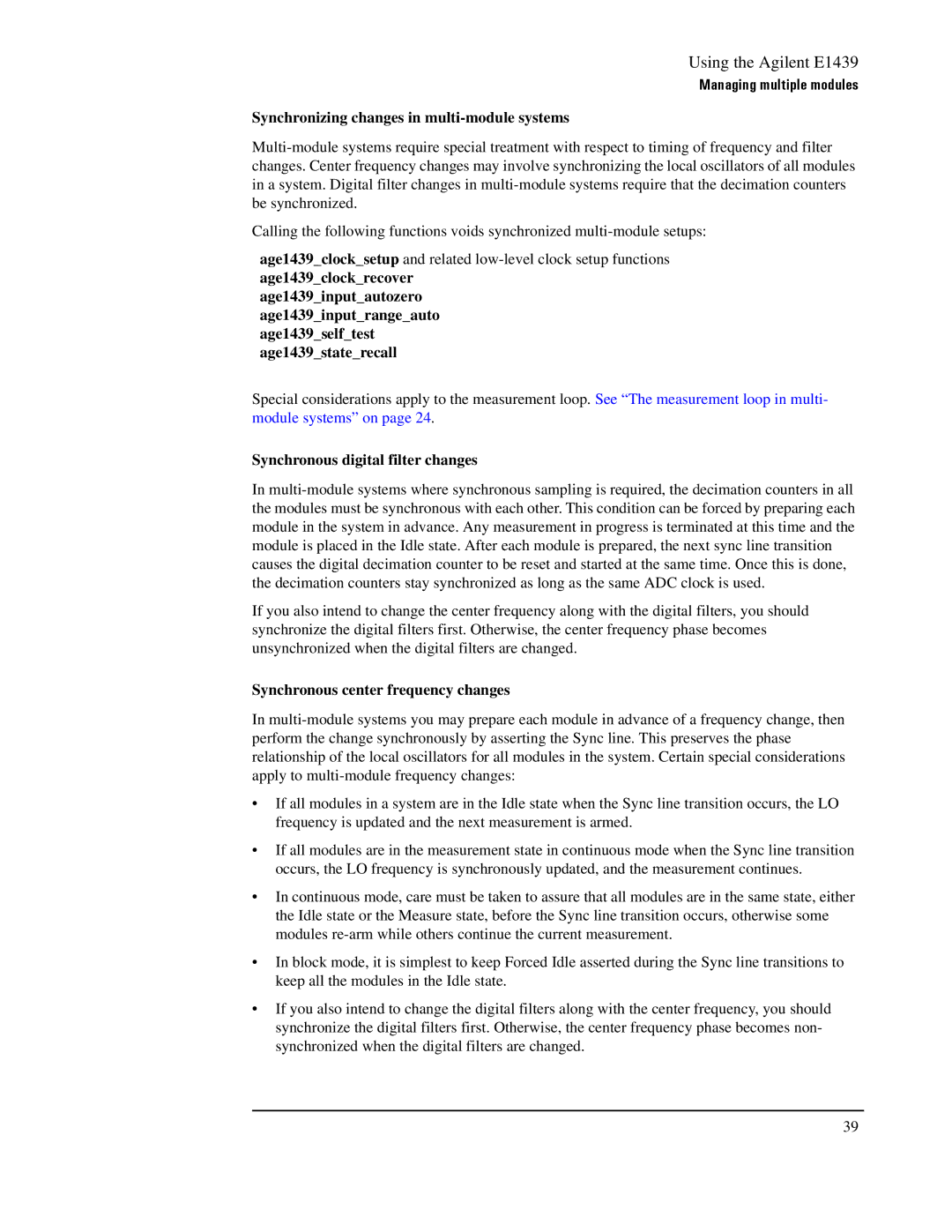Using the Agilent E1439
Managing multiple modules
Synchronizing changes in multi-module systems
Calling the following functions voids synchronized
age1439_clock_setup and related
age1439_input_autozero age1439_input_range_auto age1439_self_test age1439_state_recall
Special considerations apply to the measurement loop. See “The measurement loop in multi- module systems” on page 24.
Synchronous digital filter changes
In
If you also intend to change the center frequency along with the digital filters, you should synchronize the digital filters first. Otherwise, the center frequency phase becomes unsynchronized when the digital filters are changed.
Synchronous center frequency changes
In
•If all modules in a system are in the Idle state when the Sync line transition occurs, the LO frequency is updated and the next measurement is armed.
•If all modules are in the measurement state in continuous mode when the Sync line transition occurs, the LO frequency is synchronously updated, and the measurement continues.
•In continuous mode, care must be taken to assure that all modules are in the same state, either the Idle state or the Measure state, before the Sync line transition occurs, otherwise some modules
•In block mode, it is simplest to keep Forced Idle asserted during the Sync line transitions to keep all the modules in the Idle state.
•If you also intend to change the digital filters along with the center frequency, you should synchronize the digital filters first. Otherwise, the center frequency phase becomes non- synchronized when the digital filters are changed.
39
